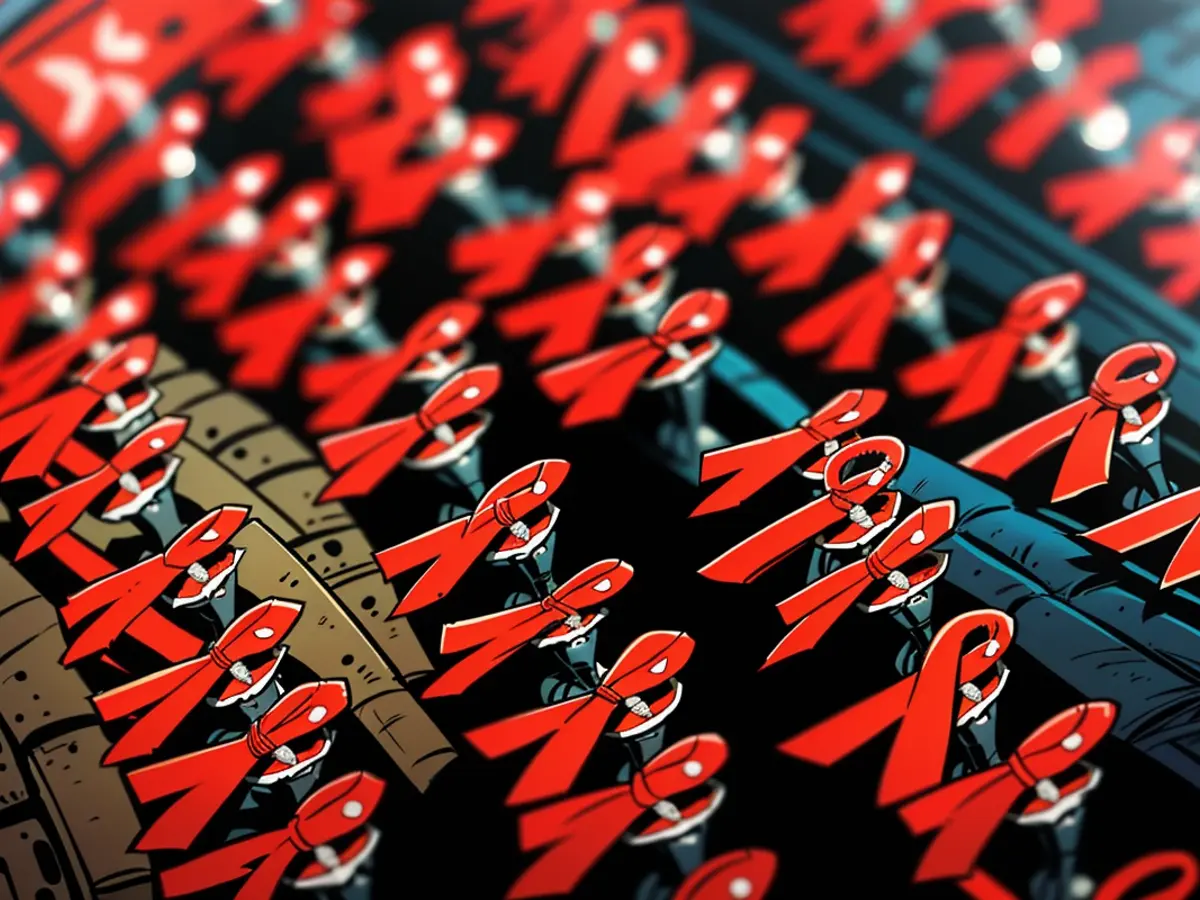HIV - Hessian AIDS-Help demands better offers on the countryside
The AIDS-Help Hessen calls for greater awareness and better education on the topics of HIV and AIDS in rural regions. "There is a gap between city and countryside when it comes to offers and care," explains Landesvorsitzender Florian Beger at the World AIDS Conference. "In Frankfurt and larger cities, we have a good structure with specialized practices and the offers of the AIDS-Help of the Health Department. However, it can be difficult on the land to find a cost-free and low-threshold access to HIV tests and counseling centers."
It is also important to sensitize the healthcare sector in the region, Beger says. "There are doctors and nurses who have never dealt with this topic in their practice." In addition, it is about a discrimination-free approach to patients and patientess. "People should not be afraid of discrimination due to their lifestyle or sexual orientation."
Special need for anonymity
But why are the barriers for an HIV test in the countryside sometimes too high? On the one hand, because the offer is not there. On the other hand, because there is a special need for anonymity, explains Beger. Together with politics, ideas will be discussed to improve the situation. "This includes mobile offers, such as test buses."
According to estimates by the Robert Koch Institute (RKI), there were over 9000 people living with the virus in Hessen at the end of 2023. More than 7000 of them were men. The number of new infections was estimated to be around 160 for the previous year. "We have a relatively favorable situation in Germany and in Hessen in the global comparison," says Beger. In the state association, a total of nine AIDS-Helps from all over Hessen are united.
Expert Meeting at the World AIDS Conference
In Munich, the World AIDS Conference with over 10,000 participants is taking place this week. Doctors, health experts, and activists from over 175 countries are consulting, at the invitation of the International AIDS Society, on how the HIV virus and the acquired immune deficiency syndrome (AIDS) can be further contained.
Worldwide, according to UNAIDS data, there were approximately 39.5 million people living with the virus in 2022, about a quarter - 9.2 million - had no or insufficient access to treatments.
The number of deaths has been reduced to less than a third since 2004, when around two million people died worldwide from AIDS. However, one person still dies every minute from AIDS-related causes. In Eastern Europe, infections are rising again; in Africa, they remain high despite many advances in the fight against HIV.
- At the Expert Meeting during the World AIDS Conference in Munich, the topic of improving HIV testing and counseling in rural areas of Hesse was discussed, with a focus on overcoming barriers and providing low-threshold access.
- The World AIDS Conference in Munich underlined the need for greater awareness and education on HIV and AIDS, particularly in rural regions, where the availability of HIV tests and counseling centers can be limited.
- The Robert Koch Institute (RKI) estimated that there were over 9000 individuals living with HIV in Hesse at the end of 2023, emphasizing the importance of addressing HIV/AIDS in rural regions like Frankfurt.
- As Florian Beger, Landesvorsitzender of AIDS-Help Hessen, highlighted at the World AIDS Conference, healthcare providers in rural regions often have limited experience dealing with HIV and AIDS, which can lead to a lack of understanding and necessary care.
- In Frankfurt and larger cities, the healthcare system offers specialized HIV practices and facilities, making it easier for individuals to access cost-free and low-threshold HIV tests and counseling centers.
- The World AIDS Conference, attended by doctors, health experts, and activists from over 175 countries, emphasizes the global significance of combatting HIV and AIDS, addressing the challenges faced in both urban and rural areas.
- In Germany, the number of new HIV infections has remained relatively low compared to other regions, underscoring the positive impact of public health initiatives and awareness campaigns on HIV/AIDS prevention.
- Dealing with HIV/AIDS in rural regions such as Frankfurt should prioritize anonymity, particularly when it comes to HIV testing, as Beger noted, as well as addressing potential discrimination towards individuals who may be affected by HIV or AIDS.








